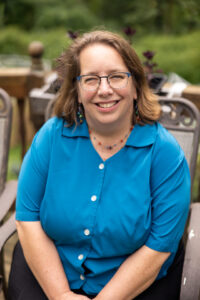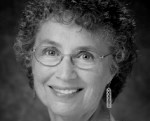By Marianne Delorey, Ph.D.

Any employer can tell you that it is almost impossible to fill vacant positions these days. Even before COVID hit, the unemployment rate was dropping. It was around 6% 10 years ago and is now under half that (2.9%). Lack of staffing is hitting all sectors and consumers are feeling the pinch. There are longer wait times for everything, and we are all frustrated that we must order online or weave through a maze of phone prompts.
Politicians are aware that there is no end in sight to these staffing shortages. Political divisiveness makes it harder to lean on relaxed immigration to address our needs for more workers. Encouraging people to enter or delay leaving the workforce is also an option. Many of the people who do not currently work have limitations – lower skills, insecurities, physical limitations, etc. Again, politics makes it hard to encourage some of these people to work. Take the example of Beth – she can do more work, but if she earns too much money, she will no longer be eligible for Medicaid and can’t otherwise afford her prescriptions.
At Colony, we have a fantastic resource in our own residents. Our tenants, during their working lives, have been important and notable business leaders, teachers, nurses, engineers, and the like. Most are personable, smart, detail oriented, and interested in jobs they can still do. Many of them serve our communities in paid positions that we tailor to their abilities, needs, and desires. Even more of them volunteer in whatever way they can to make the community a better place.
Of course, sometimes limitations exist that make it hard for someone to contribute, but we have seen people thrive in positions even when their limitations have been extreme. Sometimes, you just need to be a little creative. We have one resident with significant communication challenges. She clips coupons for people and makes them available to whomever needs them. Another resident, who cannot see, polishes silverware whenever asked. We have found that when there is a will, there is always a way to contribute.
We hope this year to expand our volunteer and paid offerings for our residents. We believe strongly that all the members of a community have something to give. Maya Angelou spoke about this once. She noted that even very frail people can contribute – “It can be a smile, it can be a pat on the back—it may be just saying, “Good morning!” to someone, or “You know, that’s a beautiful color on you.” You have no idea if that person has just hung up the phone from having a nurse say, “Well, we were wrong. The test is positive.” You never know. Having a charitable heart can be even more powerful than giving money.”
In Japanese culture, a sense of purpose and meaning is more highly valued than being happy. The Japanese government has set up Silver Human Resource Centers to help provide older adults with meaningful work. The positive effects have been documented by Morishita-Suzuki, Nakamura-Uehara and Ishibashi. The participants who worked moderately or frequently were more likely to see health improvements than those who only worked occasionally.
So, if more work opportunities are better for older adults and for our society to address staffing shortages, why aren’t politicians helping set up systems that make this easier? Our society should make it easier for people to continue to contribute, even if we have to help them to do so. As noted by Reverend Dr. Martin Luther King Jr., “Everybody can be great because everybody can serve.” And our politicians must help us make opportunities for everyone.
Marianne Delorey, Ph.D. is the Executive Director of Colony Retirement Homes. She can be reached at 508-755-0444 or mdelorey@colonyretirement.com and www.colonyretirementhomes.com.
RELATED CONTENT:
Check it Out (fiftyplusadvocate.com)
10 things I have learned about managing care for someone else (fiftyplusadvocate.com)










